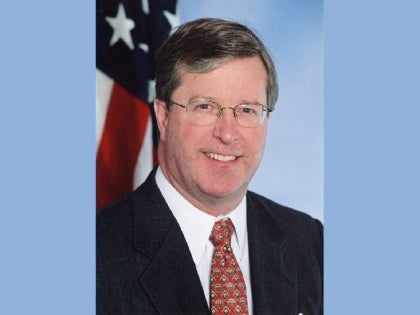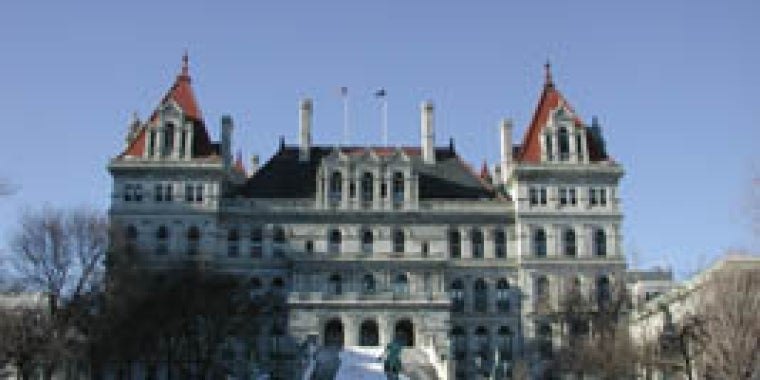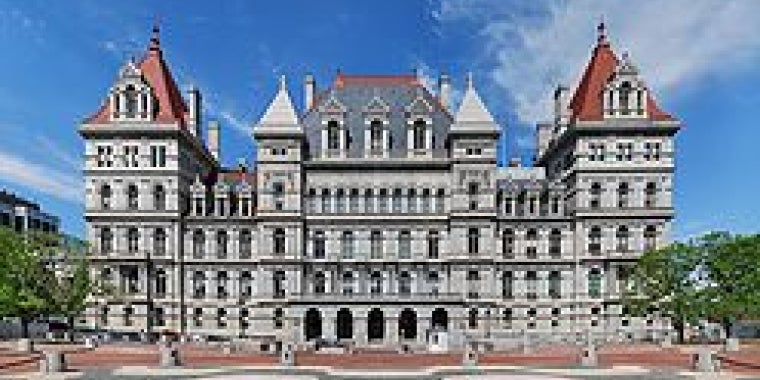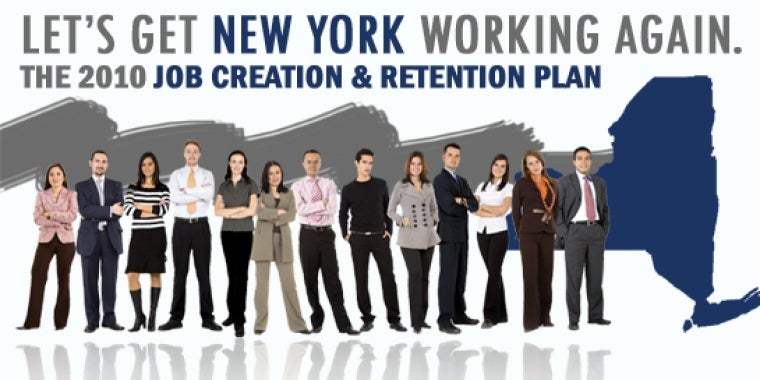
Senate Budget Plan Includes Significant Property Tax Cut

Albany, N.Y.-- State Senator George H. Winner, Jr. (R-C, Elmira) said today that a proposed state budgetbeing approved by the Senate this week will include a plan to provide $6 billion in new property tax relief over the next two years.
The Senateis completing action todayon a proposed state budget for the 2007-08 fiscal year that begins April 1. Winner saidthat theproposalreflects Senate priorities to reject new taxes, prevent devastating health care cuts, provide for a fair distribution of aid to local school districts, and build on last year’s property tax rebate program.
The Senate budgetrejects the bulk ofGovernor Eliot Spitzer’s proposed health care cuts and includes a net restoration of $544 million for Medicaid and health programs. The Senate is also rejecting Spitzer’s call for a Temporary Prison Closure Commission.
Winner said that new property tax relief remains chief among the Senate’s priorities.
"The No. 1 priority for this new budget is that it contain significant new property tax relief," said Winner. "It's a priority for local property taxpayers, for future job creation, for the quality of our communities and to keep alive the hope for sustained economic growth in upstate New York."
The Senate’s fiscal plan calls for $6 billion in new property tax relief over the next two years through a significant expansion of last year’s Rebate-NY property tax rebate program. The proposed Rebate-NY expansion, called Rebate-Plus, would triple the size of last year’s average rebate and establish a Blue Ribbon Commission on Property Tax Reform to recommend further strategies to cut property taxes. If included in this year’s final budget, Winner said that local county taxpayers would benefit under the Senate’s new plan in the following ways:
> In Chemung County, the basic tax rebate for the average county taxpayer would rise from last year’s $181 to $542, and for seniors from $303 to $908;
> In Schuyler, the average tax rebate would rise from $156 to $468, and for seniors from $257 to $771;
> In Steuben, the average tax rebate would increase from $168 to $504, and for seniors from $281 to $843;
> In Yates, the average rebate increases from $116 to $349, and for seniors from $194 to $582; and
> In Tompkins, the average rebate jumps from $176 to $527, and for seniors from $294 to $883.
For his part, the governor has called for $6 billion in new property tax relief through the state’s existing STAR program and targeted to middle class homeowners.
The Senate plan willbe submittedto joint budget conference committees for public negotiations with the Assembly beginning later this week.
Additional highlights of the Senate’s budget plan include:
> a rejection of more than $800 million in new and increased taxes and fees proposed by Spitzer, including tax increases on hospitals, nursing homes and financial services;
> a small business assistance plan to provide more than $723 million in business tax relief this year to create new jobs;
> an additional $358 million, generating over $514 million on a school-year basis, to the governor’s school aid package to ensure a fair distribution of aid to districts statewide. Specifically the Senate adds $192 million to significantly improve the distribution of school aid. Winner said that the school aid formula proposed by Spitzer would place 304 school districts (45 percent of the state’s schools) on a permanent save harmless;
> an additional $5 million for libraries bringing the total amount for library aid to $102.2 million;
> $129 million to expand eligibility for the State Tuition Assistance Program (TAP) and increase awards, including doubling the minimum TAP award;
> a restoration of $2 million in state aid through the AIM program to 81 towns and villages that had aid eliminated in the Spitzer budget;
> a $13-million restoration in the Consolidated Highway Improvement Program (CHIPS) for localities;
> $60 million in financial assistance to strengthen dairy farms that are struggling as a result of low commodity prices and high energy and livestock feed prices; and
> a rejection of Spitzer’s proposal to expand the state’s Returnable Container Act to include non-carbonated beverage containers.



